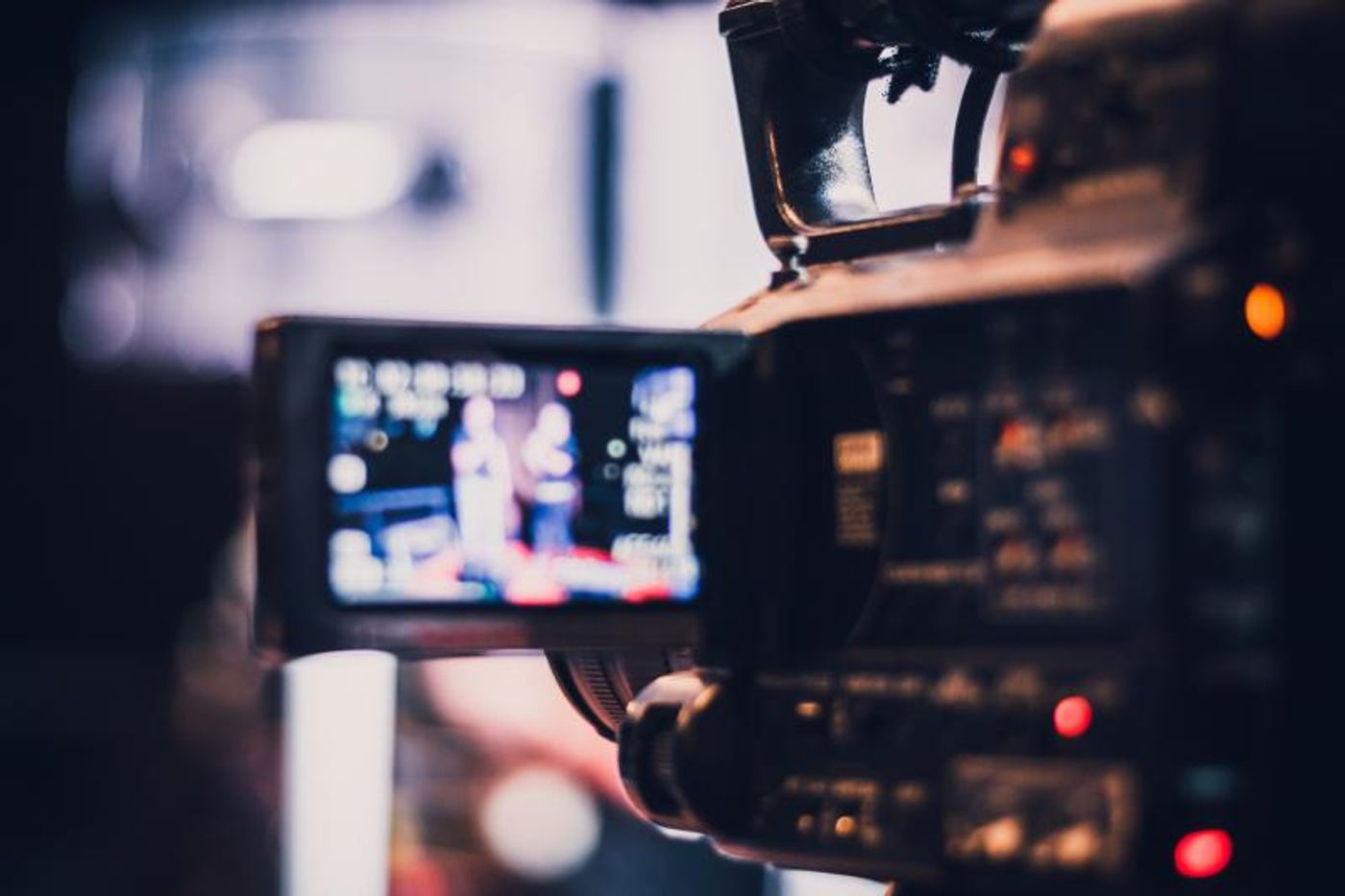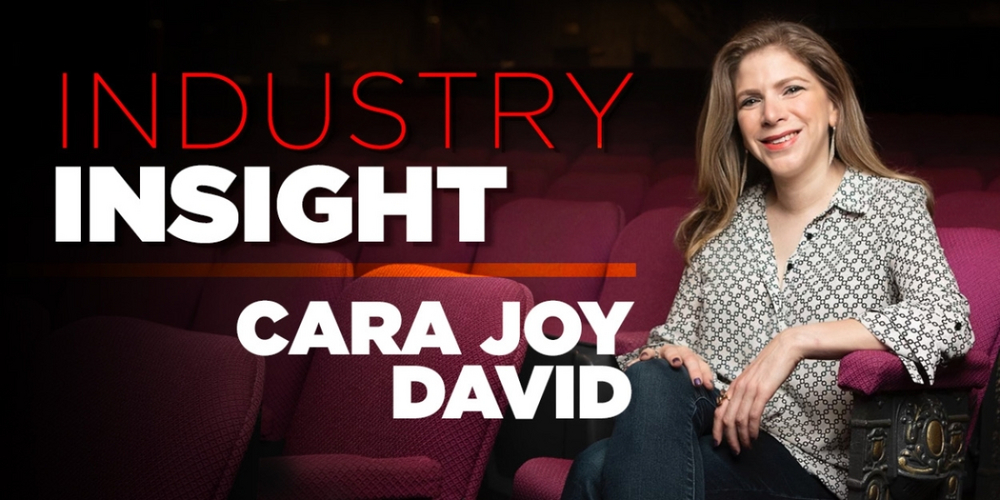Industry Editor Exclusive: Filming a Broadway Show From Your Seat - Is It Ever Allowed?
Last week, many fans who couldn't fit in the theater got to enjoy part of the final performance of THE PROM courtesy of Beth Leavel's personal publicist. Lisa Goldberg, founder of her own LSG Public Relations, put up on her social media pages two minutes twenty seconds of Leavel singing the song "The Lady's Improving" with a note that said she recorded six minutes ("including 1.5 minutes of entrance applause") and "received full permission to post." The shaky video was clearly shot from a seat in the theater, which would generally be forbidden if there was no permission. So what kind of permission do you need to do this in a Broadway show? Well, it is more than a "sure" from a producer.
I was ugly crying & managed to get the whole 6 minutes including 1.5 minutes of entrance applause but that's just for Beth to see :)
- Lisa Goldberg (@lisagoldbergpr) August 12, 2019
And before you @ me, I received full permission to post. Please enjoy @TheTonyAwards Winner & goddess among goddesses #BethLeavel @ThePromMusical pic.twitter.com/geN5FiBDCh
In terms of Actors' Equity, a person would seek permission from a producer. If the production approved, notice would be sent to Equity members twenty-four hours in advance. The person could then record up to thirty minutes of footage and post up to three minutes of that. Members are not permitted to object. Technically the footage needs to be used for a "publicity purpose;" the provision is geared toward a production's publicity and means that the video has to be used to promote a currently running or announced show. However, Equity has received pressure from its members who want to be allowed more methods of self-promotion. So they take a very broad view of the term "publicity purpose." According to an Equity spokesperson, the Leavel footage, which was released after THE PROM's final performance, would qualify even though it might not technically seem to qualify (though there is an announced tour for the show). The spokesperson said that the union is trying to strike a balance between protecting its members and allowing them to promote themselves.
The Dramatists Guild of America also is involved in this. Its approved standard contract grants producers a right to use excerpts up to seven minutes of a play and twelve minutes of a musical. (There are also special addenda related to Lincoln Center archive tapings, recordings for specials, etc. As the Guild wants to protect authors' copyrights, the agreement is complex in terms of capture and dissemination of material; most parts of that complexity are not relevant here.) The minutes have to be unedited or special permission is required. A Guild spokesperson confirmed that their approach is similar to the Equity approach--if the producer approves, the capture is allowed.
But then we get to the musicians and it gets more complicated. Without some sort of formal special exception or agreement, you can't get permission to record a number in this context. Local 802 of the American Federation of Musicians has in its standard Broadway collective bargaining agreement that producers who opt into the "Revised Media Terms," which require paying musicians two percent on top of wages, can capture unlimited amounts of material and use fifteen minutes of it. (Producers who do not opt-in, as is often the case with plays with music, can only show three minutes of footage overall of which no continuous sequence shall exceed thirty seconds. A $65 payment per musician is also required.) Except this provision solely applies to the production or someone hired directly by the production and the resulting footage "may be used for promotional and publicity purposes only." The musicians' union believes this definition is narrow. According to AFM International Director of Theatre Touring & Booking Tino Gagliardi, who previously served as President of Local 802, the purpose of the provision is to "promote a production, it is not to promote a person." Now one could argue that these type of posts, in addition to promoting an actor, also promote the show and the show's score, but Gagliardi said an argument that a shaky cell phone video would be used by a producer to promote a show is a strained one.

Stepping back, one can understand this from the musicians' point of view. Equity allows this because promotion helps its members directly. A ton of actors, producers and even other theater journalists commented positively on that video of Leavel. She was great and, if you missed her in the theater, you now know it. No less than Bebe Neuwirth replied to a post of the video with "she's spectacular." But a musician is not showing that video and saying to people: "Listen to how great that horn sounds! That's me! Hire me!" There is an argument that everything that promotes Broadway is good for everyone on Broadway, etc., etc., but, short of that, the promotion aspect doesn't really help the people in the pit. Additionally, the AFM tracks every piece because if it is later used in a different commercial way, they need to go after the producers for payment related to that use. So capture of this type adds to the union's work.
Of note, Goldberg did not respond to an email asking about the permission she received. A PROM spokesperson did not know and therefore I did not receive a comment from the relevant person at THE PROM. One assumes that because she affirmatively said she received permission, she did ask the producer and receive permission. I would assume the producers love Leavel--as most do--and thought the video was a fine idea. It is however unknown what steps that producer took under the relevant agreements. (There are also rights the designers have.) This piece is less about this particular video but rather recording in a Broadway theater in general.
As a stickler for theater etiquette, I'm of course anti-recording musical numbers from theater seats. I've written previously about the slippery slope that comes from even recording curtain calls. But I have heard from actor friends throughout the years that they wish there was more of this - or an official video they could use beyond B-roll. (Some of my friends--while publicly decrying the person shooting illegal video in Row F, Seat 104--enjoy full bootlegs that they can show their family and friends.) The heightened role of social media in today's world has increased this desire. Productions and actors want to constantly stay relevant by posting new material on Instagram. Sure, there is the live streamed "I'm Here" from Cynthia Erivo's final performance in THE COLOR PURPLE or a full video of Orfeh and others singing the PRETTY WOMAN title song during the show's curtain call. It simply is not enough in the minds of many. But you just can't get everything you want. There are some lines that remain to preserve the integrity of the Broadway experience. Maybe there are compromises? Maybe a producer could record more of special performances, such as final performances or anniversary shows. But, for now, Broadway has not caught up to the world's insatiable appetite for social media content.
As it stands today, there are specific union rules that need to be adhered to if you want to record a Broadway show. (Different rules apply to off-Broadway, tours, regional productions, etc.) You can't record "Michael in the Bathroom" from BE MORE CHILL's final performance just because you've read tweets requesting it. Even if you have a connection to a producer, it isn't as simple as getting a producer to agree and send out a notification. Be careful.
Videos


